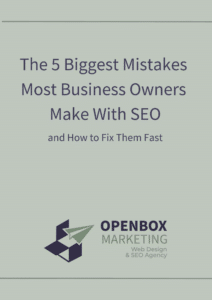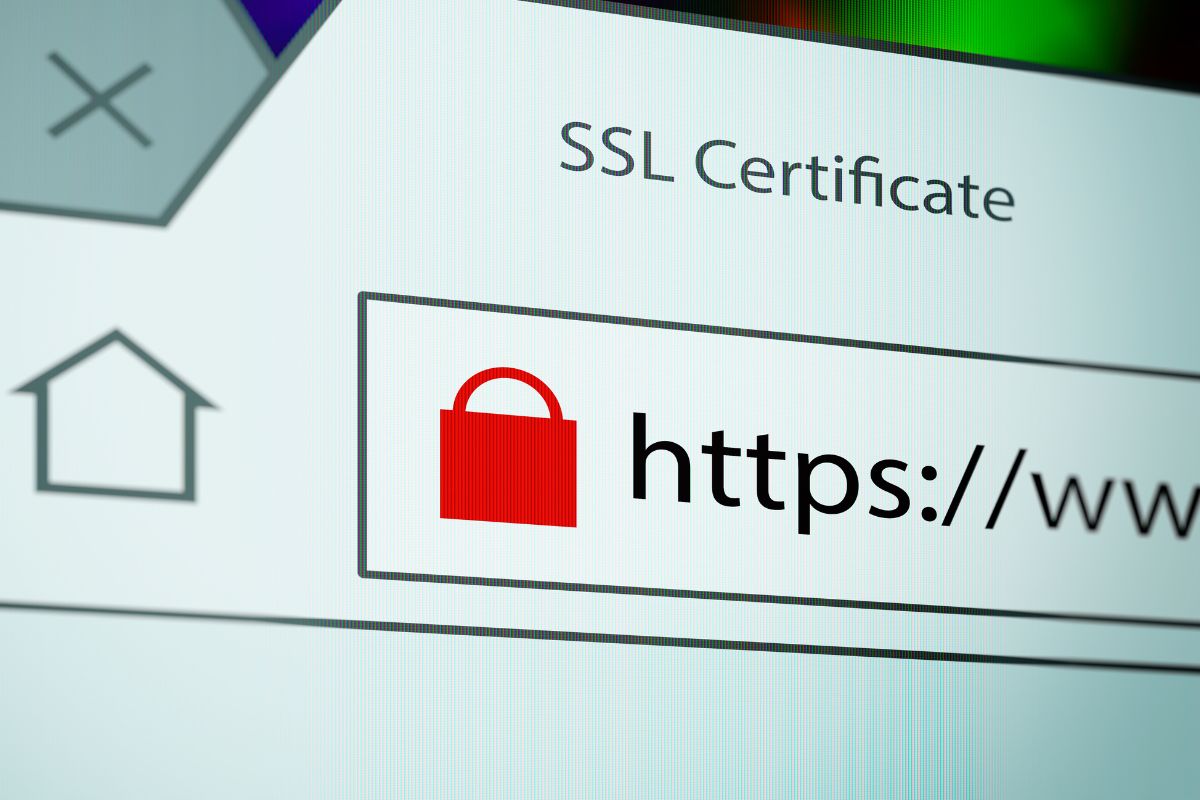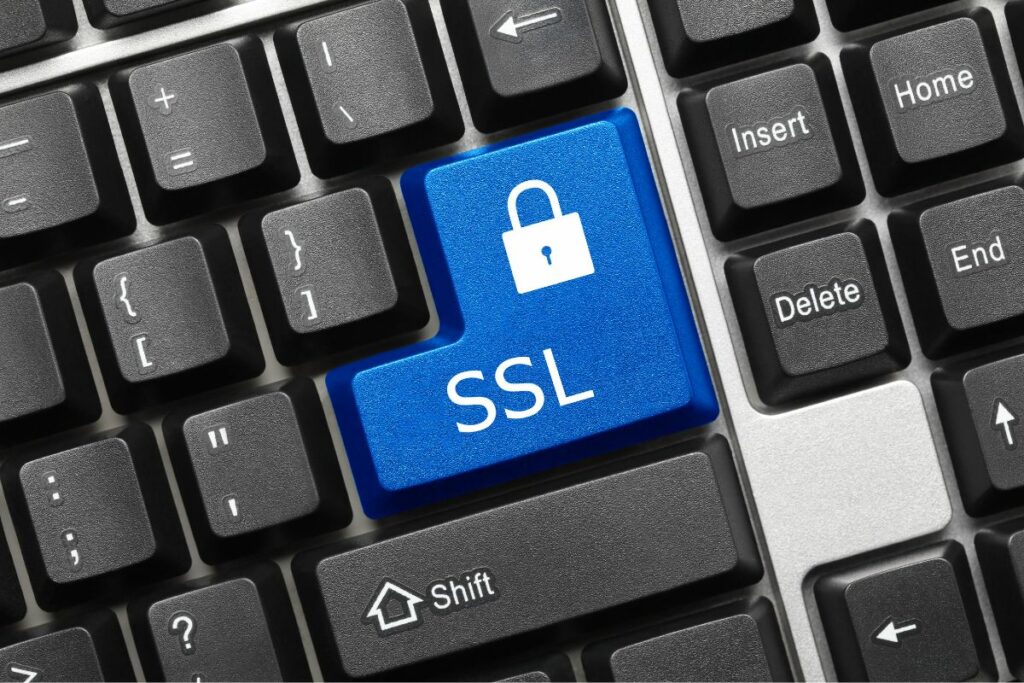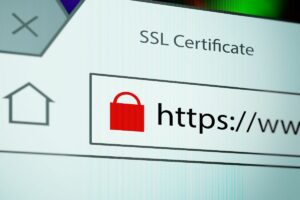Don't let SEO mistakes hinder your business's online success. Download our FREE guide today and unlock the strategies to optimise your visibility and avoid common pitfalls. Take charge and get your guide now!

In the vast landscape of the internet, where data travels at the speed of light, ensuring the safety of your information is crucial. This is where SSL certificates come into play. But what exactly is an SSL certificate, and why should you use one? Let’s dive into the world of website encryption!
What is an SSL Certificate, and Why is it Used?

SSL, or Secure Socket Layer, is like a virtual bodyguard for your website.
Imagine your website as a letter you’re sending through the internet. Without encryption, it’s like sending an open postcard for anyone to read. SSL certificates, on the other hand, act as an envelope for your data, ensuring that it stays private and secure.
Here's why SSL certificates are essential:
Data Encryption
SSL certificates encrypt the information exchanged between a user’s browser and your website. This encryption turns sensitive data, like login credentials and credit card numbers, into unreadable code for anyone trying to intercept it.
Trust and Credibility
When your website has an SSL certificate, visitors see a little padlock icon in the address bar. This visual cue signals that your site is secure, building trust with your audience. In fact, many users are cautious about interacting with websites that don’t have this extra layer of protection.
Improved Search Engine Ranking
Search engines, like Google, prioritise secure websites. Having an SSL certificate can positively impact your site’s ranking, making it more visible to users searching for content or services related to your site.
Do I Need an SSL Certificate for WordPress?
Yes, and here’s why:
Security Measures
WordPress is a widely used platform, making it a potential target for cyber threats. Having an SSL certificate ensures that the communication between your visitors and your WordPress site remains confidential.
User Trust
In an age where online scams are prevalent, users are becoming more cautious. An SSL certificate not only secures your site but also signals to users that their data is safe, building trust in your brand or content.
SEO Benefits
Search engines favour secure websites. By having an SSL certificate, you enhance your WordPress site’s chances of ranking higher in search results and attracting more visitors.\
How Do I Resolve an SSL Certificate Issue?

Encountering SSL issues can be a bit daunting, but fear not! Here are some common problems and solutions:
Expired SSL Certificate
If your SSL certificate expires, your website might show a security warning. To resolve this, simply renew your SSL certificate through your certificate provider.
Mixed Content Issues
This occurs when some elements on your website, like images or scripts, are loaded using HTTP instead of HTTPS. Update your content and links to use the secure HTTPS protocol to resolve this issue.
Insecure Content Warnings
Browsers may warn users if your site contains insecure content. Inspect your website for insecure elements and update them to use HTTPS.
Mismatched Domain
Ensure that the SSL certificate matches your domain name. If there’s a mismatch, users may see a warning. Contact your certificate provider to address this issue.
An SSL certificate is like a digital shield for your website, providing security, trust, and SEO benefits. Whether you run a personal blog or a business site using WordPress, investing in an SSL certificate is a smart move to ensure the safety of your data and build confidence among your visitors.
Remember, a secure website is a happy website, and SSL certificates play a crucial role in achieving that digital happiness!
Share this Article

Julian Demerre
Julian has been a web developer since 2013, focusing primarily on WordPress websites. A rare plant enthusiast who loves to cook, is addicted to coffee and has worked as a freelance photographer. He has been published in photography magazines and is now sharing his knowledge of web technology.






